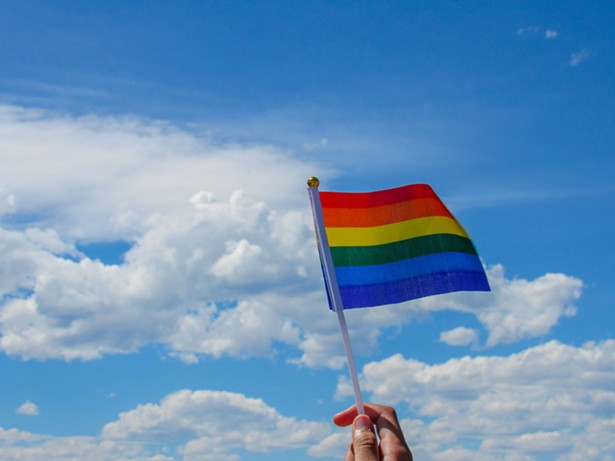
It’s been a cool 11 years since the first and only time I watched any of the Bachelorette/Bachelor franchise. I only made it a few episodes into Ali Fedotowksy’s season in 2010, bowing out shortly after it was revealed that one of the contestants still had a girlfriend, which ended with the potential suitor in question limping away on crutches through some plants because he refused to answer to Ali? It was trash TV at its finest, but not the queer kind that I like.
In fact, for most of my adult life, the Bachelor/Bachelorette franchise has never penetrated the bubble of queerness I inhabit. I don’t have any queer friends who watch it. It never pops up much on queer news sites, if at all. And I pretty much can keep up with the queer zeitgeist without tuning into the franchises. Until now.
Colton Underwood, who I’m told was the bachelor on its 23rd (?!) season, came out as gay in an exclusive interview with Good Morning America. And the expectedly lowball interview has been met with much celebration and admiration, what feels like a practiced, plastic reaction to celebrity coming outs. While his coming out is revelatory and worth celebration, these interviews do a predictable disservice to the woman who just last year accused Underwood of stalking her.
According to numerous media reports, Underwood’s former girlfriend and Bachelor contestant Cassie Randolph filed a restraining order against him in September, accusing him of showing up at her and her parents’ homes, harassing her via text, and even putting a tracking device on her car. These actions fit classic definitions of stalking, a dangerous crime on its own that can also lead to escalating violence.
Ordinarily, in the age of #MeToo and Times Up, people like Underwood would rarely be given such prime-time attention after such high-profile allegations of abuse. But what Underwood is banking on and benefitting from—and what GMA is happily handing him—is a freshly laundered reputation under the guise of queer acceptance.
And he’s already reaping the rewards, according to reports about his Netflix show with his so-called “gay guide” Gus Kenworthy. As many, many, many remarked on Twitter, it’s hard to believe that the same opportunity would be given to anyone who isn’t as immensely privileged as Underwood. And out of every queer person on the globe, amid an ongoing reckoning over racial equity, Netflix decided Underwood’s shepherd to the queer community would be someone who would only reinforce that privilege, not someone who would realistically challenge Underwood and that privilege.
In the GMA interview, Underwood blames past mistakes on an “internal struggle” familiar to many queer people. But stalking isn’t an outlet for unexpressed queerness; it’s a symptom and extension of violent misogyny from which many wrongly believe gay men are exempt.
Up until recently, it was a common refrain for gay men to gag at the mention of a vagina, to decry women’s reproductive parts as gross while simultaneously delighting in the whimsy of their female friends’ breasts. Gay men happily drag their female friends to bars and drag shows, while also rolling their eyes at women who they perceive as interlopers.
By coming out as gay, the truth of which I don’t doubt, Underwood likely hopes to reform his image into the classic gay best friend, the guy girls can always be comfortable around; but he and others forget that gay men can be just as dangerous to women as their straight counterparts—Milo Yiannopoulos and Kevin Spacey come to mind—and his proximity to the pinnacle of heteronormavity that is Bachelor Nation, and the ease with which he minimizes the claims against him, are just proof of that. v








